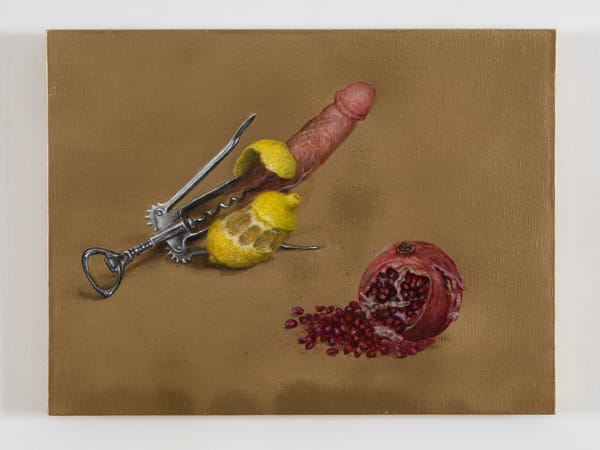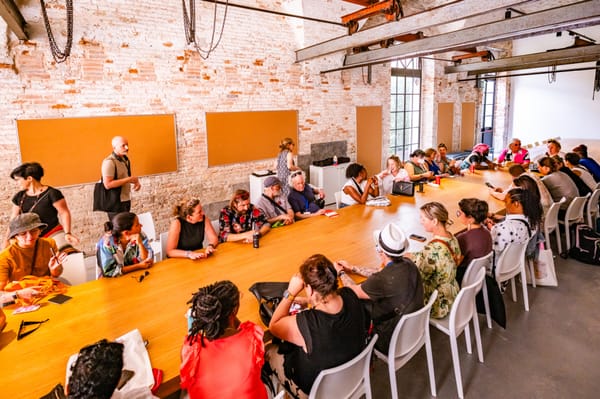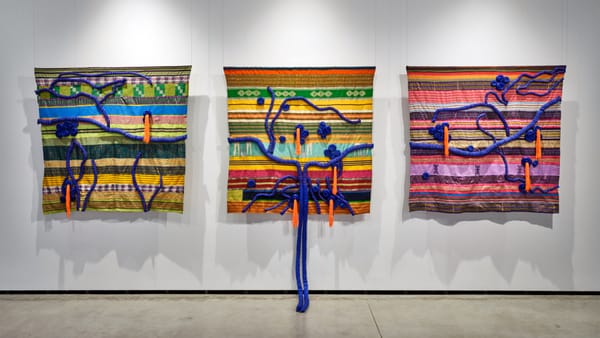Documentary on Women's Freedom of Movement, or Lack Thereof
Courtney Stephens's documentary on women's travels from the 1920s to '50s presents not just personal glimpses into daily life a century ago but also documents of colonialism.

Courtney Stephens’s films are often travelogues. Mixed Signals (2018) and Ida Western Exile (2014) look at ocean liners and the landscape of the Southwest, respectively — the latter inspired by the poetry of Hannah Weiner, the former by the art of Georgia O’Keeffe. The American Sector (2020) tours displays and collections of pieces of the Berlin Wall around the United States, and her recent short, Solstice at Carhenge (2022), takes viewers to the namesake tourist trap. Stephens combines this journeying spirit with a similar fixation on archival research in her feature Terra Femme, a documentary on women’s freedom of movement — or, more often historically, lack thereof.
The film consists of photographs and video clips from around the world, all captured by women in the midst of traveling during the 1920s through the ’50s. It recalls the collective slideshows families used to host in their living rooms. Reinforcing this, the project was originally a performance piece in which Stephens would narrate over the footage for a live audience. She later recorded a voiceover for more traditional screenings. (Both versions were presented at different times during Terra Femme’s weeklong run at Anthology Film Archives.) In collating these experiences into one whole, the film presents a sort of archetypical idea of a “woman’s travelogue.” But that simple, easy description belies the ways that Stephens interrogates the whole concept of finessing so many disparate experiences into one narrative, to say nothing of how she acknowledges the limitations of her materials and the sociological reasons behind those limitations.
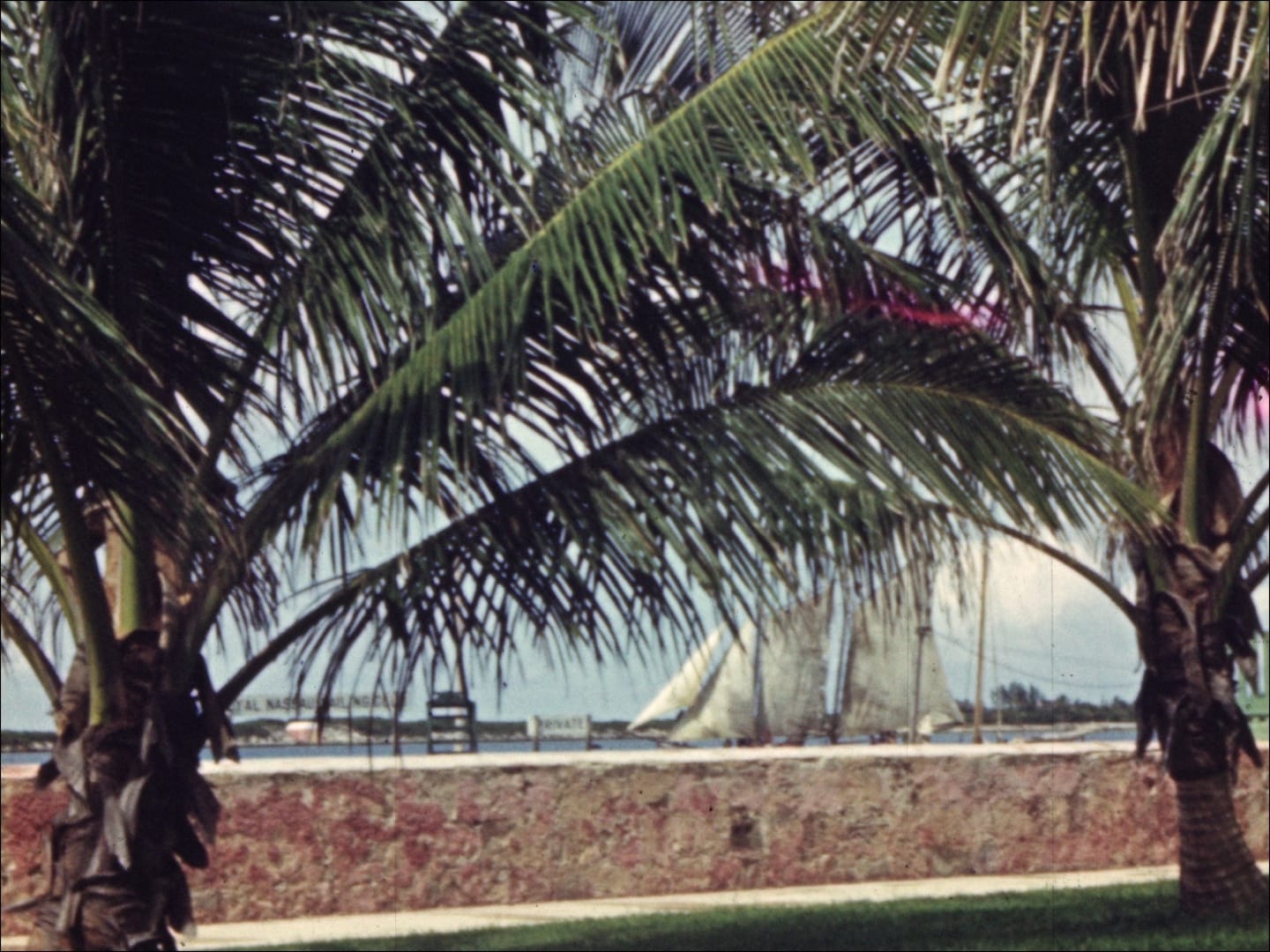
When capturing foreign cities and people, beautiful vistas and mundane street scenes, food and animals and weather and much more, the women who took these images were responding to several major paradigm shifts in culture. Firstly, the era’s rapid technological developments facilitated such enterprises. Among other things, this film is a chronicle of the evolution of the everyday camera’s capabilities and availability during the first half of the 20th century. Given the opportunity to document their daily lives and their travels, it’s interesting to consider what these people chose to focus on. (At one point Stephens wryly observes that “Archivists always complain about how much film is wasted on flowers.”)
Two other vital social tides of this period that the film highlights are the greater freedom of movement afforded to women and the unprecedented access to relatively fast and trouble-free global travel to a broad demographic. But Stephens never forgets that such freedom came only to women of certain economic, cultural, and racial privileges. Her archival sources are mainly from the United States and United Kingdom, and many recorded vacations to “exotic” locales like Africa or Asia. Several of these clips, then, are not just personal glimpses into daily life a century ago but also documents of colonialism.
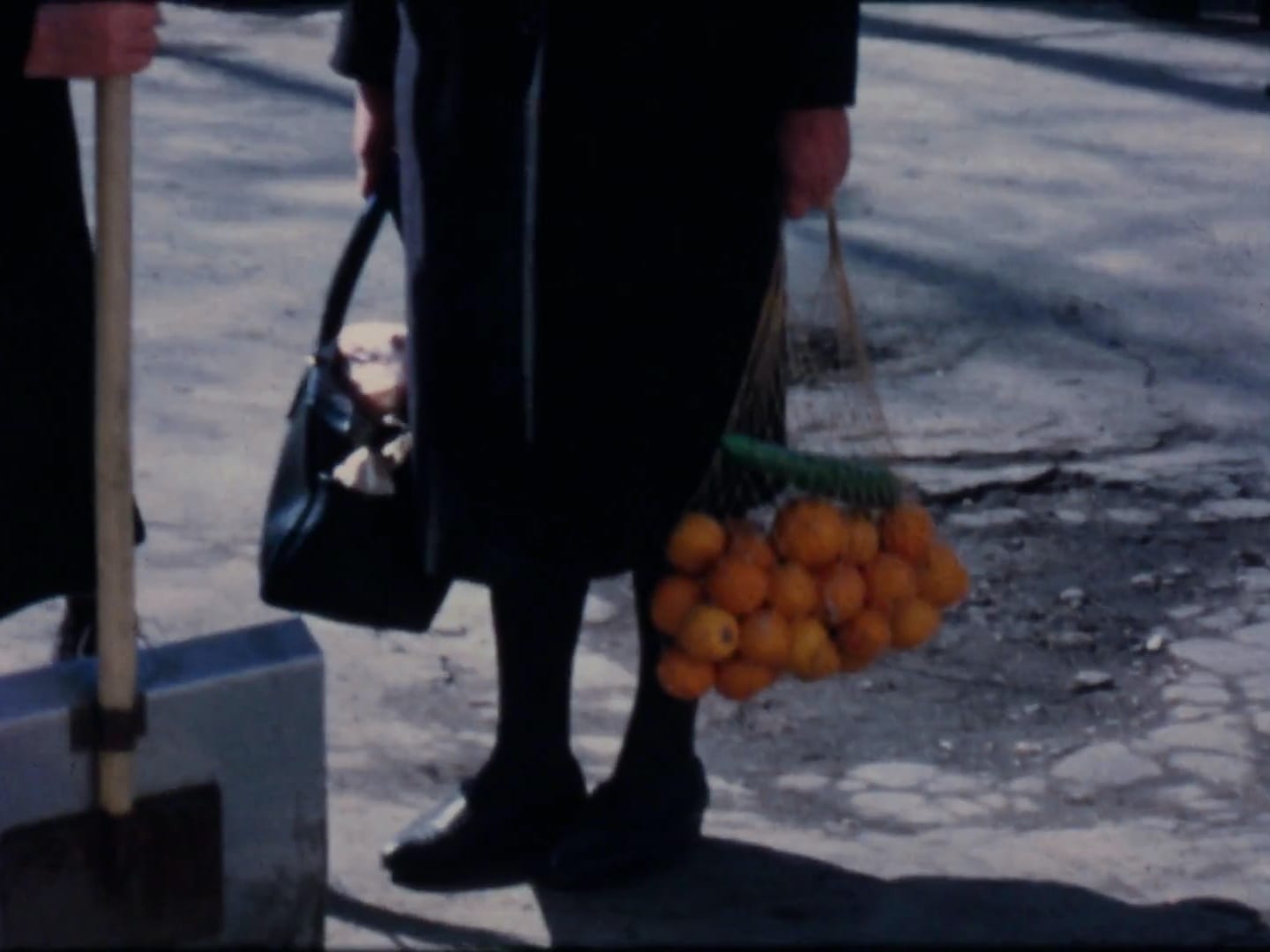
Stephens cites Saidiya Hartman, one of our foremost contemporary scholars on historical images of people of color, as she muses on what these materials inadvertently, but clearly, say about their times and places. The work of Armeta Hearst, a Black woman from Seattle who documented a road trip with her husband across the US during the 1950s, is obviously weighted with much different meaning than what many of her contemporaries captured. The Hearsts could not expect hospitality everywhere they went, and the gaze returned by certain White subjects appears wary.
Lingering somewhere between a lecture and video essay (and, depending on how its exhibited, leaning more toward one than the other), the film carries an impressive intellectual heft that can sustain consideration and discussion of its ideas long beyond its mere hour-long run time. Stephens is canny and precise in connecting elements from the rich archive with her thoughts. In Terra Femme, the 20th century emerges like a series of postcards to haunt us.
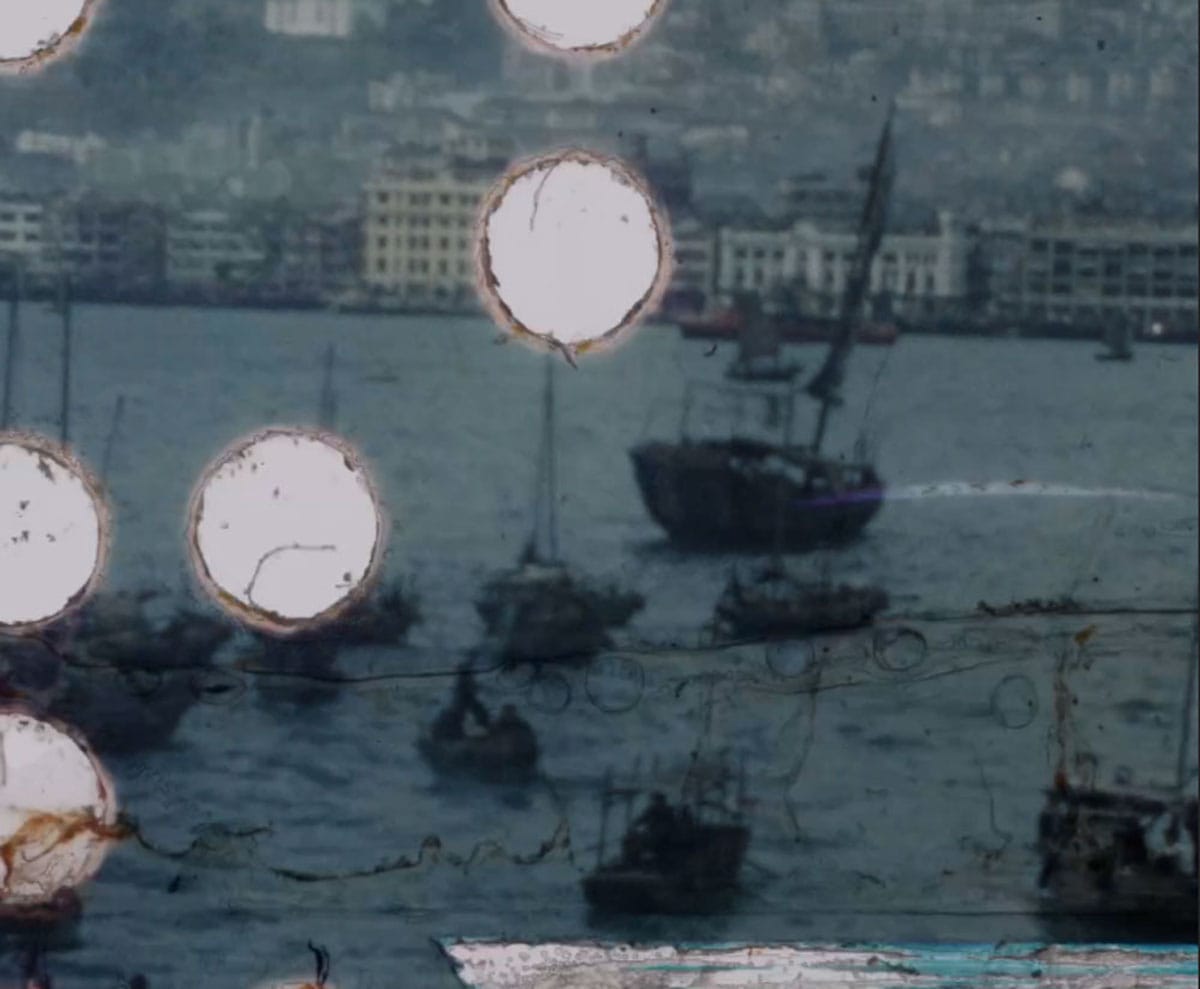
Terra Femme is scheduled to screen at the Archivio Aperto film festival in Bologna, Italy, and the Montreal International Documentary Festival.


